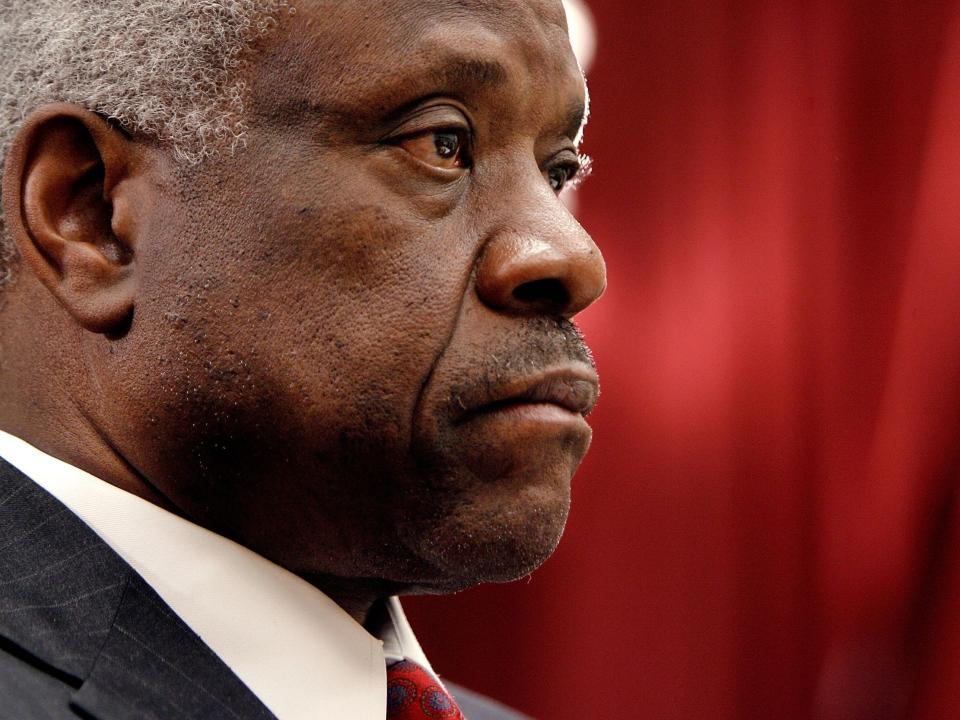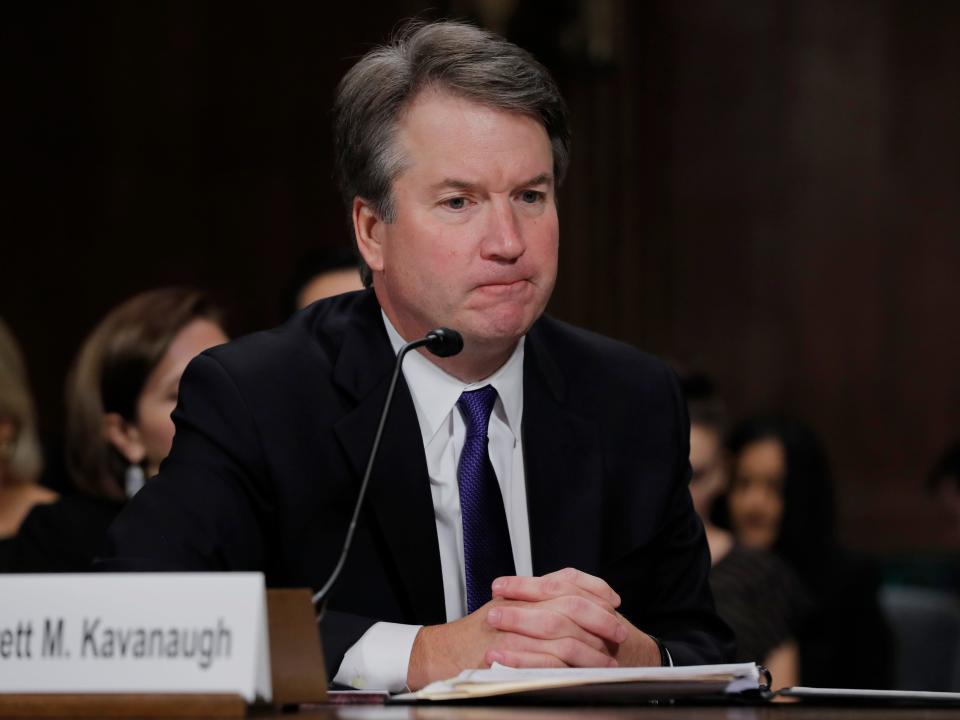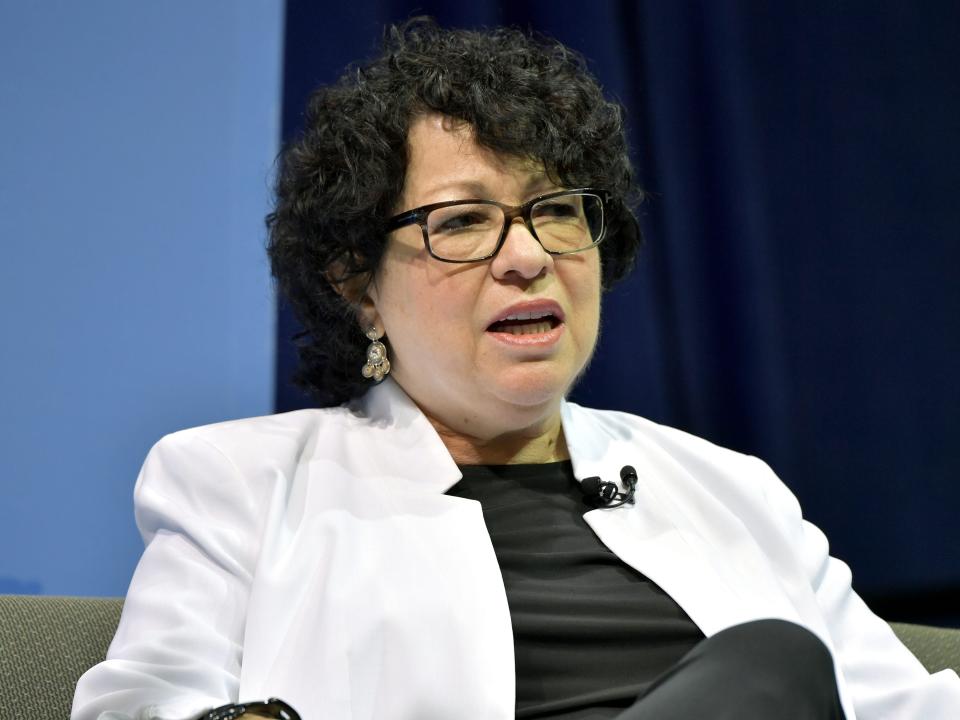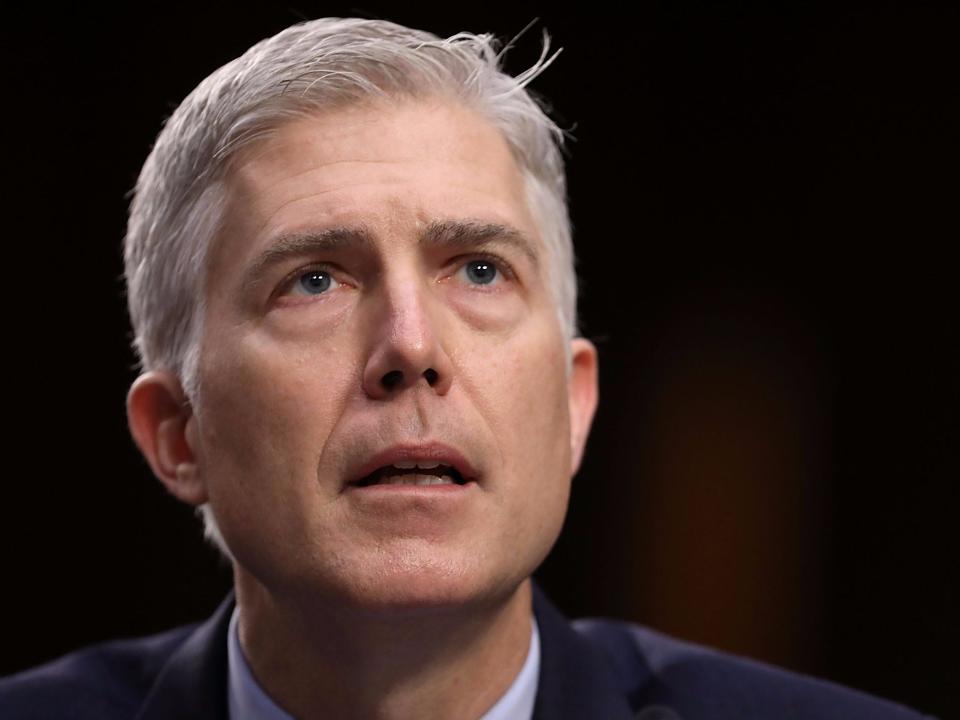Secret billionaire benefactors, mysterious debt, undisclosed real estate deals, millions in headhunting fees, and more: All of the ethics questions hanging over the Supreme Court
- Oops!Something went wrong.Please try again later.
- Oops!Something went wrong.Please try again later.
- Oops!Something went wrong.Please try again later.
- Oops!Something went wrong.Please try again later.
- Oops!Something went wrong.Please try again later.
Justice Clarence Thomas is at the center of a scandal involving a billionaire subsidizing his lifestyle.
Chief Justice John Roberts' wife has made millions as a legal recruiter from firms who argue at the court.
Land deals, mysterious debts, book deals, it's an ethical minefield at the court right now.
Americans already had a dismal view of the Supreme Court. Now, the nation's highest court is confronting an ethics debacle that has thrusted the already bruised institution further into the headlines.
Justice Clarence Thomas has been the subject of multiple bombshell reports about his close relationship with a Texas billionaire who has financed lavish trips, purchased his mother's home, and help support members of his family. Before these stories broke, Thomas was already staring down concerns about wife, Virginia "Ginni", and her conservative advocacy.
Chief Justice John Roberts, who has cast himself as a defender of the court's image, hasn't been immune either. Roberts' wife, Jane, made millions in commissions placing lawyers at the high-priced firms that often argue before the court.
Roberts and other justices have bristled over the possible impositions of a formal ethics code on the court. Other federal judges have a formal ethics code, but the high court prefers to police itself.
Absent impeachment there is little punishment that any lawmaker or American can seek to impose on a justice who like all other judges can serve for life.
Here's a look at everything we know so far:
Clarence Thomas seems to have a new problem every day

No justice has received more scrutiny in recent weeks than Thomas. ProPublica's series of reports began by documenting how Thomas accepted lavish trips paid for by Crow for decades without disclosing it. The publication estimated that one such vacation could have cost over $500,000 if Thomas paid for it himself.
The nonprofit publication later broke news on how Crow purchased Thomas' mother's home from the justice and two other people in 2014. Crow later said that he did so with the intention of establishing a museum focused on the second Black Supreme Court justice's life. The Texan hasalso attacked ProPublica over its repeated reports.
Thomas has confirmed his friendship with Crow but has argued that he was advised that he did not need to disclose the trips. His friends and allies have gone even further. On May 4, Mark Paoletta, a conservative attorney who represented Virginia Thomas before the House January 6 committee, slammed a ProPublica report as "malicious" after the publication detailed how Crow paid thousands for the private school tuition of Thomas' grandnephew, whom the justice and his wife were caring for.
Ginni Thomas hasn't escaped scrutiny either. Thomas testified before the January 6 panel after multiple reports about her private text messages pushing election conspiracies with then-White House chief of staff Mark Meadows. On May 5, The Washington Post reported that conservative legal activist Leonard Leo arranged for Virginia Thomas to be paid tens of thousands of dollars while directing that Virginia's name be left off of any billing information.
Jane Roberts, the Chief Justice's wife, banked over $10.3 million as a legal recruiter working with top firms

Multiple reports have focused on Jane Roberts' career as a legal recruiter, a job she switched to following the chief justice's confirmation in 2005.
Insider previously reported that Jane Roberts made $10.3 million in commissions from elite law firms from 2007 to 2014, according to a whistleblower complaint. The complaint made by a disgruntled former colleague of Roberts is in the hands of the House and Senate Judiciary Committees.
Roberts has placed lawyers at firms that argue before the Supreme Court, though there is no evidence that Roberts' specific clients have themselves argued before the Supreme Court. In a deposition related to the complaint, Jane Roberts attributed her business to "Successful people have successful friends."
John Cashman, the president of Major, Lindsey & Africa, the firm where Jane Roberts worked, told Insider that Roberts was "one of several very successful recruiters" at the firm.
Brett Kavanaugh accrued tens of thousands of dollars in debt. It went away.

Questions about Kavanaugh's finances began even before his confirmation.
The Trump White House disclosed during Kavanaugh's nomination process that the future justice had racked up tens of thousands of dollars in debt. Per ProPublica, the future justice and longtime Capital-area resident, built up as much as $200,000 in debt watching Washington's MLB team.
The Washington Post reported in 2018 that Kavanaugh's friends reimbursed him for their share of the tickets and the then-federal judge had stopped buying season tickets.
Sonia Sotomayor didn't recuse herself from cases related to her book publisher

Justice Sotomayor has faced questions over the $3.1 million Knopf has paid her for a memoir and children's books.
Sotomayor, an Obama-appointee, did not recuse herself from three separate occasions when copyright cases involving Penguin Random House came before the high court on appeals. Penguin Random House owns Knopf.
CNN reported that Gorsuch also declined to recuse himself from a case. He too has received hundreds of thousands from book deals with the publisher.
For years, there has been frustration over the high court's recusal guidelines. There is a federal law that describes when a judge should step aside in a case, but ultimately the decision is left up to the individual justice. Unlike lower federal courts, justices cannot have another judge substituted for them in the event of a recusal, potentially meaning the court could deadlock or reach a different ruling in their absence.
Sotomayor has received significant attention since the other justices in the headlines are conservative.
Neil Gorsuch didn't disclose that a big law executive bought property from him

Gorsuch, one of former President Donald Trump's three appointees, has come under scrutiny for his sale of a property he co-owned in rural Colorado.
Politico reported that Justice Gorsuch and his co-owners sold a 40-acre tract to "Greenberg Traurig, one of the nation's biggest law firms with a robust practice before the high court" just nine days after Gorsuch's confirmation.
Brian Duffy, the executive in question, told Politico that he has never argued before Gorsuch nor has he met the justice socially. Duffy said he cleared the purchase with Greenberg Traurig's own ethics department. The legal executive, a longtime Colorado resident, also said that he had been looking for a similar property for years before his purchase.
Gorsuch did disclose Duffy's name when he reported the purchase. Gorsuch only listed the income under the LLC he and his co-owners had formed.
Gorsuch, like Sotomayor, also did not recuse from a case involving his book publisher.
Read the original article on Business Insider

